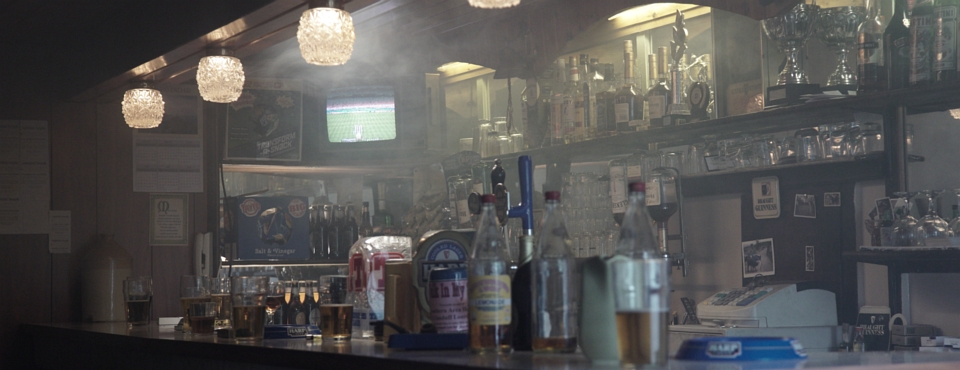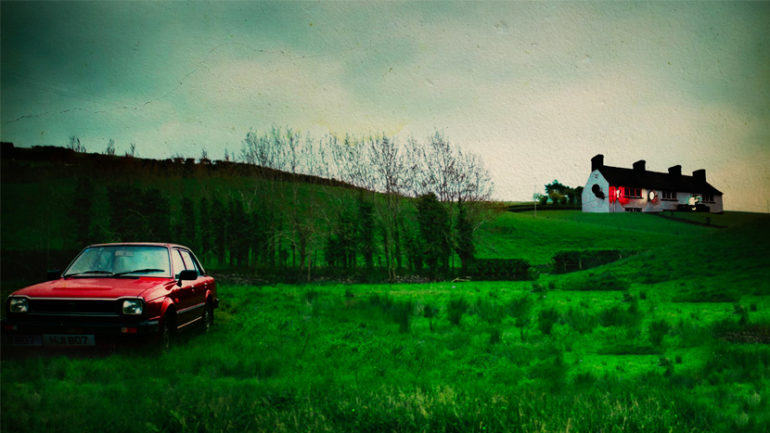In 1994 a group about 15 people gathered in a pub in Loughinisland to watch the Ireland v Italy football match in the 1994 World Cup. Minutes after Ray Houghton had put Ireland into the lead two Ulster Volunteer Force (UVF) gunmen burst in and sprayed the bar with machine gun bullets. Six people died and in the days after, the then Northern Ireland secretary Sir Patrick Mayhew promised that that perpetrators will be caught (‘an RUC that never gives up’ will bring forth a hollow laugh from some communities) and serve a long time in prison. It is these comments and others from the police that arrive at the scene that give the film its deeply ironic title.
With No Stone Unturned prolific documentary filmmaker Alex Gibney expands on his own 30 minute documentary, Ceasefire Massacre which he made for the ESPN 30 for 30 series. This expansion looks deeper at the massacre and its place within the context of the imminent ceasefire agreement in Northern Ireland. The film interviews some of the family members of the people killed and the barman that was injured in the shooting during the run up to the publication of a new report from Police Ombudsman Dr Michael Maguire. The report, released in 2016, indicates that there had been collusion between the loyalist paramilitaries and the RUC.

This is all very worthy and some of the revelations regarding collusion will not surprise a lot of people who have followed Northern Irish politics over the years. The shock in the film is the naming of names involved in the shooting, which was unexpected to this reviewer. Some surveillance footage towards the end surprised almost as much mainly through the identification of the source of the footage. The tragedy is that because of concessions in the Good Friday agreement anyone arrested over paramilitary shootings would only serve a short time in prison. But the anger from the families is laid squarely at the foot of the police, the secretive intelligence services and the British Army themselves. So much physical evidence was recovered straight after the killings, but some went missing to that most ‘dog ate my homework’ of dodgy excuses, the ‘asbestos contamination’. Added to this was the fact that suspects were identified straight away but never really investigated with any real conviction. Again, this information is damning, but not really surprising.
Gibney is a prolific filmmaker and when this is the case there is generally a varied quality to the work. A decision to dramatise the shooting at the beginning takes away some of the raw power of the imagery of the actual crime scene. The use of dramatisations are difficult to get right in documentaries and I would not be fan in general unless the reason serves the story beyond filling time. But there is no doubt that Gibney cares deeply about this atrocity and gives the families a chance to speak about it. But there is a feeling that he is too far outside his comfort zone here. The explanations of the origins of ‘The Troubles’ seems made for the US market and will make Irish people cringe a little. His decision to give the barman injured in the shooting, Aidan O’Toole, subtitles is strange as he is very clear when speaking. It seems there to accentuate his injuries, but does nothing of the sort. If the reasoning is the regional accents there would surely be subtitles for everyone interviewed?
But there is no doubting that Gibney is clear where the blame lies. Naming the gunmen involved in the shooting is brave, and time will tell whether this is the correct decision. Will there be renewed pressure on the PSNI to make arrests? More worryingly will there reprisals from one of the smaller paramilitary groups still lurking around? No Stone Unturned is a caring, fascinating but somewhat flawed documentary, telling us nothing new about collusion and its history, but certainly bringing us new information to be shocked by. This says more about the moral nature of documentaries than the nature of politics in Northern Ireland. It will be fascinating to look back at some point in the future to see what the fallout from this is.

